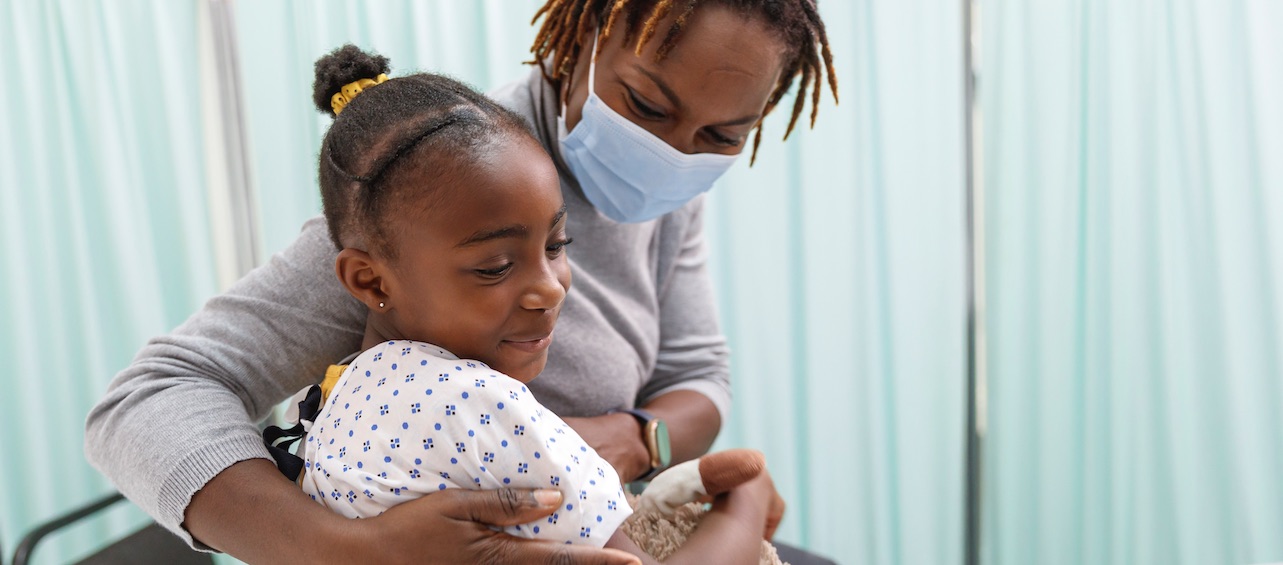As a neurosurgeon with Cincinnati Children’s, I get a lot of questions about second opinions. People ask me to provide second opinions, and I also refer patients to other specialists for second opinions.
Receiving another opinion about a diagnosis and treatment recommendation can be very valuable. Every patient is different, and every family is different. What is a good solution for one family might not be for another. Seeking other opinions can be a way to determine the right solution for your specific situation.
Here’s what I find important for families to know about getting a second opinion.
Questions I Get Asked About Second Opinions
What is a second opinion?
A second opinion involves having someone else review your child’s diagnosis and medical records and provide a recommendation.
Second opinions are often done in person. However, it’s possible to receive a second opinion online. Families should evaluate which option works best for them and their situation. Either way, families receive another expert opinion on their child’s condition.
Why would someone want to consider getting a second opinion?
Families seek second opinions for a variety of reasons, especially for complex or rare conditions. They are helpful in many circumstances like:
- An unclear diagnosis.
- Questions or concerns about a diagnosis.
- A change in diagnosis or the treatment your local care team is recommending.
- Little or no improvement with the current care plan.
- Questions or concerns about a treatment recommendation.
My second opinion cases are often a question of (1) whether or not to do surgery, and (2) what surgery to do. With complex diagnoses, there can be multiple solutions to one problem. For example, one surgeon might recommend surgery A, and another might recommend surgery B. But there may not be one best option. Getting a second opinion can help you weigh those options and see which one is best for your child and family at that time.
Surprising Facts About Second Opinions
It’s okay to ask your doctor about getting a second opinion.
I’ve never met a doctor who was offended when a patient asked them about getting a second opinion. Sometimes people don’t want to appear impolite so they are hesitant to ask their provider about getting a second opinion. Don’t be! Getting a second opinion can make you more confident in your decision, and it often helps form a good relationship between the patient, family and care team.
I encourage my patients’ families to consider second opinions for more complex issues that are not urgent. I think it’s a good idea so they feel confident about the treatment their child will be receiving.
Third opinions can sometimes be helpful.
If the recommendations offered between your first and second opinions vary a lot, sometimes it can help to get a third opinion. But more is not always better. Getting many opinions on one diagnosis, while possible, can result in confusion.
How to Get a Second Opinion
Ask for a referral.
A lot of people turn to social media for referrals. This can be helpful, but dig deeper than just social posts. You want to find a care team with the experience to meet the needs of your particular situation.
It’s also OK to talk to your first opinion provider. At the time of your visit or afterward, ask that provider who they would suggest going to for a second opinion. They know their field and can suggest experts for your diagnosis.
Ask about transferring medical records.
When you call, state that you’d like a second opinion. The center you call will be able to walk you through their process for these types of appointments. Ask about how medical records will be transferred, and make sure to mention radiology images if they relate to your child’s condition. Any team providing a second opinion will help you navigate those next steps.
Tips for Seeking Second Opinions
- Share the results of your second opinion with your original care provider. A second opinion, whether online or in person, is meant to be a tool to help guide your decision. Use the information from both opinions to help you decide on the option that makes the best sense for your family.
- Consider the safety of timing: Does this diagnosis allow you the time to get a second opinion? Receiving a second opinion, either in person or online, does take time. Second opinions are best for those who aren’t in an emergent situation needing to start treatment right away. If unsure, ask your provider if they think you have time to safely obtain a second opinion.
- Come up with a list of questions you’d like to request from your second opinion provider. You may have the option of sending them to an online second opinion provider. For in-person second opinions, take them with you to your appointment.
- Take notes at your first opinion appointment. Take these notes with you when you get an in-person second opinion. This can allow for a more informed discussion at your appointment.
If you are looking for additional insights about your child’s diagnosis, information about another treatment option, or peace of mind as you move forward, getting a second opinion may help. Having a child who needs surgery or has a complex condition is challenging and stressful for families. I want my patients and their families to feel confident about the decision they’re making. Second opinions can help with that.
For a second opinion from Cincinnati Children’s, reach out to the appropriate specialty for your child’s diagnosis. To learn more about online second opinions at Cincinnati Children’s, visit our online second opinions FAQ page.


Second opinions are always important no matter what medical condition is there. Great blog, really informational.